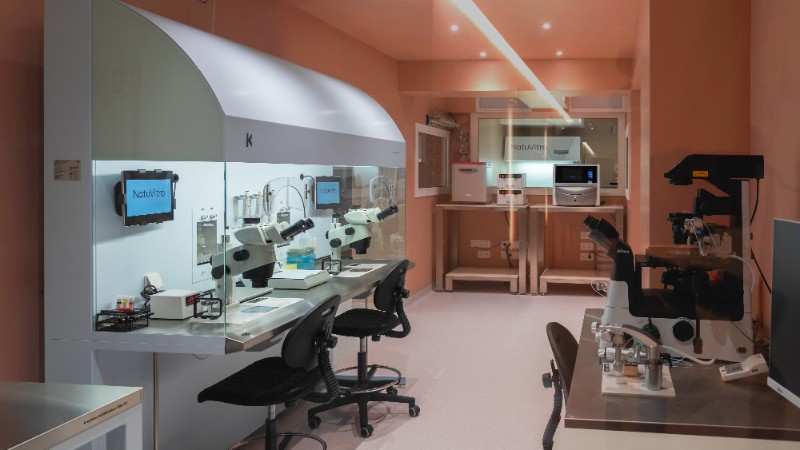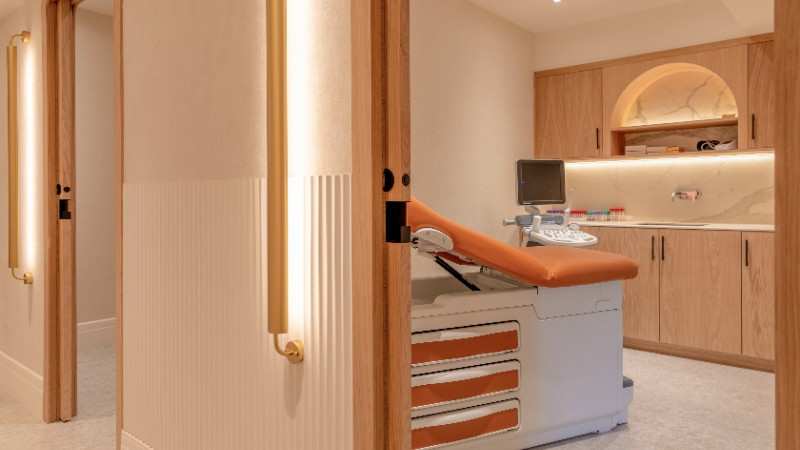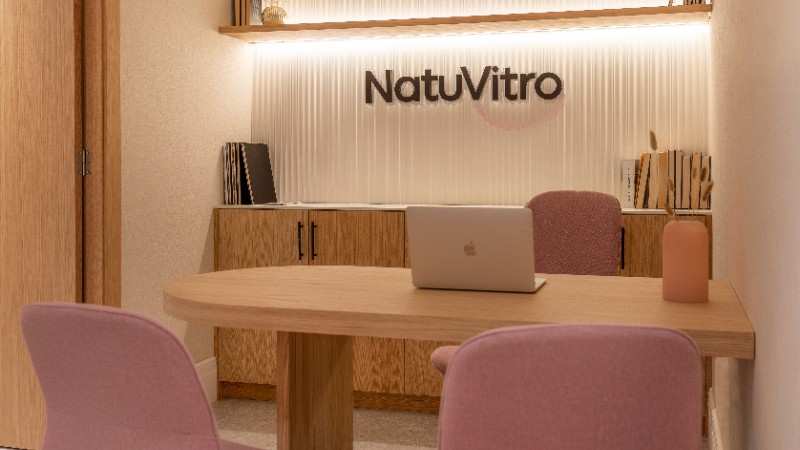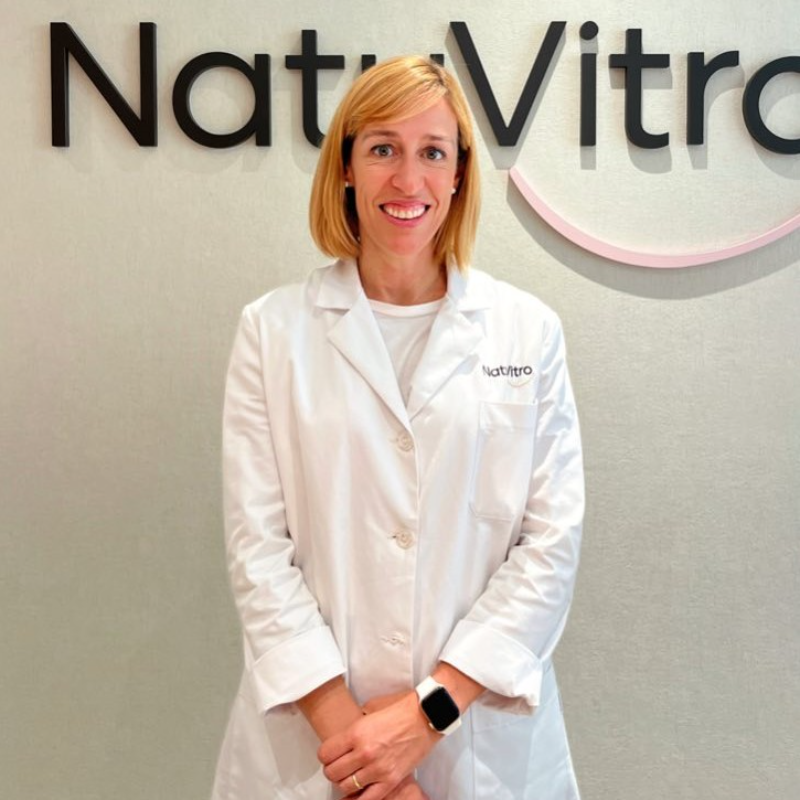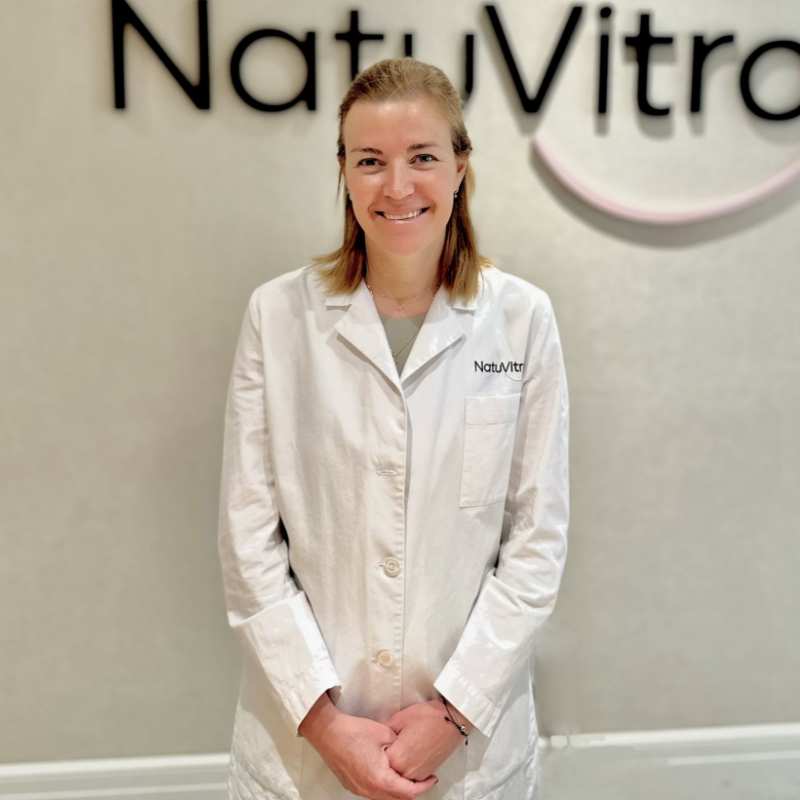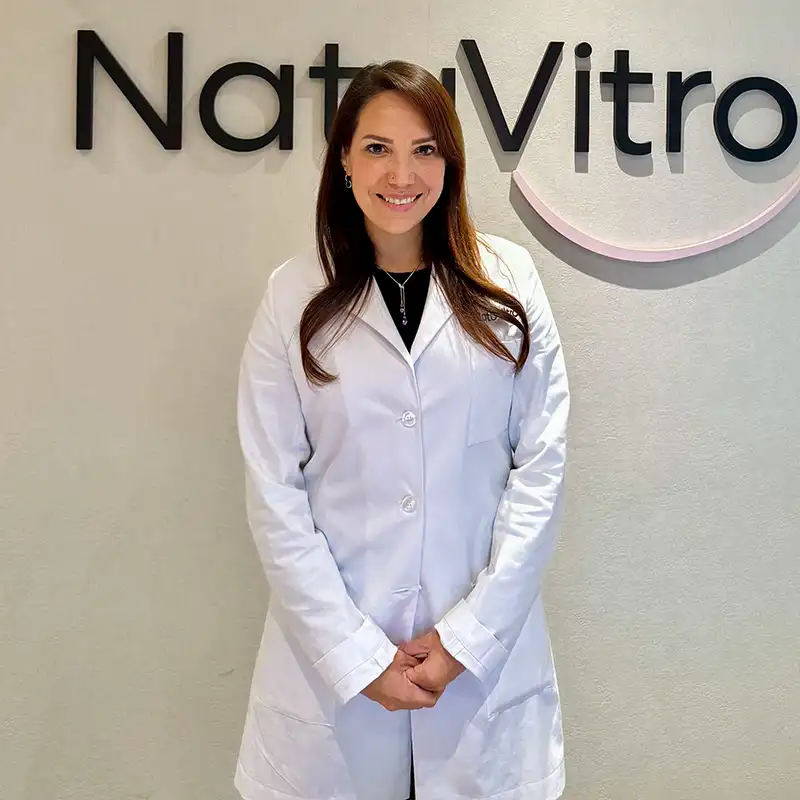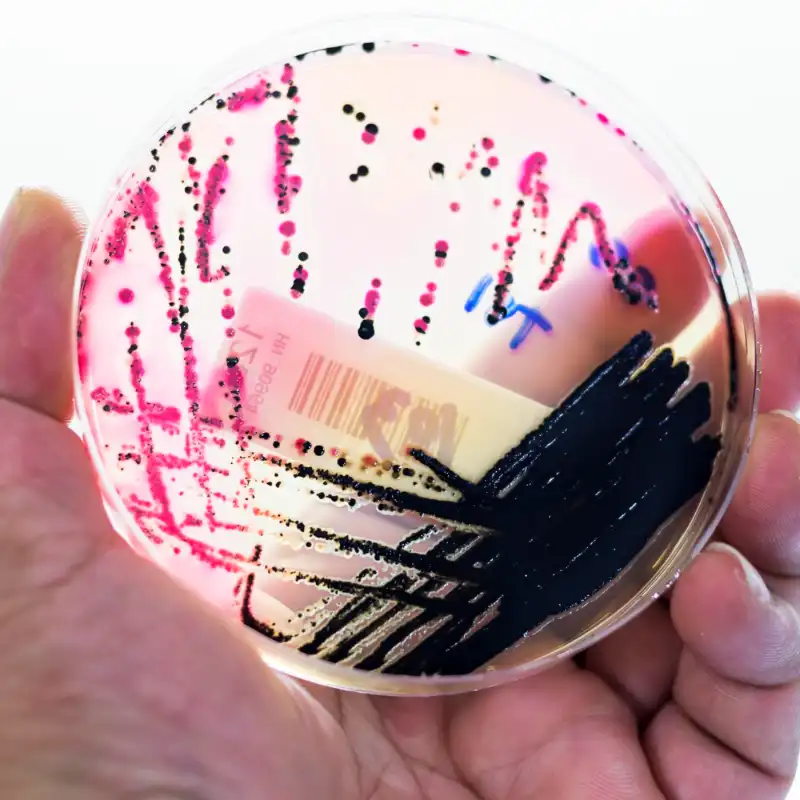
Genetics and Heredity: The Basics of Understanding
Genetics is the science of the laws of heredity and variations of genes in organisms. It is the genetic code of DNA that determines most human characteristics. Hereditary diseases result from mutations in genes or chromosomes. These changes can be inherited from parents or occur spontaneously due to external factors (e.g., radiation, chemicals, viruses).
Genetic diseases are not just a genetic anomaly but a complex process that affects the functioning of cells and the entire organism. Understanding the basics of genetics allows for timely detection and management of hereditary diseases, thus reducing the likelihood of their transmission to offspring.
Why It Is Important to Know About Hereditary Diseases
Genetic diseases can significantly deteriorate the quality of life for individuals and entire generations of families. Awareness of potential risks and prevention methods is particularly important in today's society.
Understanding genetics is important for
- early diagnosis and prevention of serious pathologies
- informed pregnancy planning, considering genetic factors;
- the development of personalized treatments;
- anticipating possible complications;
- improving quality of life in cases of already diagnosed diseases.
What Is a Hereditary Disease?
Definition and Examples
Hereditary diseases are conditions caused by abnormalities in the structure or number of chromosomes, changes in the DNA sequence, or mutations in individual genes. These mutations can affect different levels of genetic material:
- Genomic level - changes in the number of chromosomes (e.g., trisomy 21 in Down syndrome);
- Chromosomal level - rearrangements within chromosomes (e.g., Turner syndrome, Klinefelter syndrome);
- Gene level - mutations in specific genes;
- Mitochondrial level - mutations in mitochondrial DNA.
Effects on the Organism
Genetic mutations can disrupt cells and systems of the organism:
- metabolic processes
- development of organs and tissues
- the nervous and endocrine systems,
- immune response,
- the formation of malignant tumors.
It is important to distinguish between genetic disorders and chromosomal disorders, as the approaches to their diagnosis and treatment may differ.
Main Groups of Genetic Diseases
Monogenic Diseases
They develop when a single gene is mutated. They are well-studied and are often inherited in a dominant or recessive pattern. Examples include:
- Marfan syndrome,
- cystic fibrosis,
- sickle cell anemia,
- Tay-Sachs disease,
- Catcall syndrome.
Polygenic Diseases
They result from a combination of mutations in several genes and environmental influences. They are difficult to diagnose and treat. Examples include:
- Type 2 diabetes,
- bronchial asthma,
- high blood pressure.
Mitochondrial Diseases
Passed exclusively through the maternal line. They most often affect energy-dependent organs - brain, heart, muscles. Example: MELAS syndrome, which causes strokes, deafness, and seizures.
Transmission Pathways
Dominant or Recessive Transmission
- Dominant - one copy of the mutated gene is sufficient (e.g., Huntington's disease).
- Recessive - two copies of the defective gene inherited from both parents are needed (e.g., cystic fibrosis, phenylketonuria).
Sex-linked and Autosomal Forms
- Sex-linked - with mutations in the sex chromosomes (e.g., hemophilia, color blindness).
- Autosomal - with mutations in non-sex chromosomes.
Diagnosis of Hereditary Diseases
Genetic Testing
- DNA sequencing: The principle of sequencing is to read the bases (genetic code) to locate an error among the genes (also known as a mutation). Unlike chromosomes, DNA is not visible under a microscope. A preliminary step is therefore required for the sequencer to read the gene. This involves replicating the DNA fragment into millions of identical copies using a technique called PCR (Polymerase Chain Reaction).
- Chromosomal analysis by DNA chip (ACPA) (also known as CGH array): This technique allows for the detection of chromosomal abnormalities or the existence of large pieces of DNA (or genes) in addition or subtraction.
Cytogenetics
- Karyotype: The karyotype consists of observing all the chromosomes that constitute an individual's genetic heritage.
- FISH analysis (Fluorescent In Situ Hybridization): FISH analysis is a technique that allows viewing a specific area of a chromosome, unlike the karyotype, which allows analyzing all chromosomes.
Biochemical and Non-invasive Tests
- Newborn screening;
- Tests for metabolic disorders;
- Prenatal diagnosis (amniocentesis, chorionic villus sampling);
- NIPT (Non-Invasive Prenatal Testing) is the analysis of free fetal DNA in the mother's blood.
Prevention and Genetic Counseling
Genetic counseling is essential to reduce hereditary risks. It includes
- analyzing family history;
- constructing a genetic pedigree;
- assessing risks for offspring;
- recommendations on pregnancy preparation;
- psychological support for the couple.
Modern Approaches to Treatment
Gene Therapy
Advanced methods for treating hereditary pathologies:
- CRISPR-Cas9;
- ZFN and TALEN;
- Cell therapy;
- RNA interference;
- gene replacement or editing.
Genetics in Reproductive Medicine
Genetic diagnosis plays an important role in IVF, particularly in the following cases:
- IVF with egg donation;
- IVF with double donation (egg and sperm from a donor).
Genetic screening and preimplantation diagnosis (PGD) allow for:
- excluding severe genetic diseases;
- selecting donors with a compatible genetic profile;
- increasing the chances of successful implantation and pregnancy;
- minimizing the risks of chromosomal abnormalities.
Ethical Considerations
The questions addressed are as follows:
- editing the embryo's genome;
- the admissibility of modifications to the hereditary code;
- potential social and biological consequences.
Ethics and scientific validity should be an integral part of any gene therapy.
Hereditary diseases are not a verdict. Modern technologies allow for the diagnosis, prevention, and effective treatment of many pathologies. Gene therapy and reproductive technologies, including IVF, play a particularly important role where precise assessment of genetic risks is crucial. The future of genetics lies in a personalized approach, scientific ethics, and the development of innovations.
Our experts are ready to examine your case history, clarify your choices, and address every question you have.
Don't wait to make informed decisions – your personalized guidance awaits!
- Spain (España)+34
- France (La France)+33
- Italy (Italia)+39
- United Kingdom+44
- United States+1
- Belgium (België)+32
- Switzerland (Schweiz/Suisse)+41
- Germany (Deutschland)+49
- Netherlands (Nederland)+31
- Afghanistan (افغانستان)+93
- Albania (Shqipëri)+355
- Algeria (الجزائر)+213
- American Samoa+1
- Andorra+376
- Angola+244
- Anguilla+1
- Antigua and Barbuda+1
- Argentina+54
- Armenia (Հայաստան)+374
- Aruba+297
- Ascension Island+247
- Australia+61
- Austria (Österreich)+43
- Azerbaijan (Azərbaycan)+994
- Bahamas+1
- Bahrain (البحرين)+973
- Bangladesh (বাংলাদেশ)+880
- Barbados+1
- Belarus (Беларусь)+375
- Belize+501
- Benin (Bénin)+229
- Bermuda+1
- Bhutan (འབྲུག)+975
- Bolivia+591
- Bosnia and Herzegovina (Босна и Херцеговина)+387
- Botswana+267
- Brazil (Brasil)+55
- British Indian Ocean Territory+246
- British Virgin Islands+1
- Brunei+673
- Bulgaria (България)+359
- Burkina Faso+226
- Burundi (Uburundi)+257
- Cambodia (កម្ពុជា)+855
- Cameroon (Cameroun)+237
- Canada+1
- Cape Verde (Kabu Verdi)+238
- Caribbean Netherlands+599
- Cayman Islands+1
- Central African Republic (République centrafricaine)+236
- Chad (Tchad)+235
- Chile+56
- China (中国)+86
- Christmas Island+61
- Cocos (Keeling) Islands+61
- Colombia+57
- Comoros (جزر القمر)+269
- Congo (DRC) (Jamhuri ya Kidemokrasia ya Kongo)+243
- Congo (Republic) (Congo-Brazzaville)+242
- Cook Islands+682
- Costa Rica+506
- Côte d’Ivoire+225
- Croatia (Hrvatska)+385
- Cuba+53
- Curaçao+599
- Cyprus (Κύπρος)+357
- Czech Republic (Česká republika)+420
- Denmark (Danmark)+45
- Djibouti+253
- Dominica+1
- Dominican Republic (República Dominicana)+1
- Ecuador+593
- Egypt (مصر)+20
- El Salvador+503
- Equatorial Guinea (Guinea Ecuatorial)+240
- Eritrea+291
- Estonia (Eesti)+372
- Eswatini+268
- Ethiopia+251
- Falkland Islands (Islas Malvinas)+500
- Faroe Islands (Føroyar)+298
- Fiji+679
- Finland (Suomi)+358
- French Guiana (Guyane française)+594
- French Polynesia (Polynésie française)+689
- Gabon+241
- Gambia+220
- Georgia (საქართველო)+995
- Ghana (Gaana)+233
- Gibraltar+350
- Greece (Ελλάδα)+30
- Greenland (Kalaallit Nunaat)+299
- Grenada+1
- Guadeloupe+590
- Guam+1
- Guatemala+502
- Guernsey+44
- Guinea (Guinée)+224
- Guinea-Bissau (Guiné Bissau)+245
- Guyana+592
- Haiti+509
- Honduras+504
- Hong Kong (香港)+852
- Hungary (Magyarország)+36
- Iceland (Ísland)+354
- India (भारत)+91
- Indonesia+62
- Iran (ایران)+98
- Iraq (العراق)+964
- Ireland+353
- Isle of Man+44
- Israel (ישראל)+972
- Italy (Italia)+39
- Jamaica+1
- Japan (日本)+81
- Jersey+44
- Jordan (الأردن)+962
- Kazakhstan (Казахстан)+7
- Kenya+254
- Kiribati+686
- Kosovo+383
- Kuwait (الكويت)+965
- Kyrgyzstan (Кыргызстан)+996
- Laos (ລາວ)+856
- Latvia (Latvija)+371
- Lebanon (لبنان)+961
- Lesotho+266
- Liberia+231
- Libya (ليبيا)+218
- Liechtenstein+423
- Lithuania (Lietuva)+370
- Luxembourg+352
- Macau (澳門)+853
- North Macedonia (Македонија)+389
- Madagascar (Madagasikara)+261
- Malawi+265
- Malaysia+60
- Maldives+960
- Mali+223
- Malta+356
- Marshall Islands+692
- Martinique+596
- Mauritania (موريتانيا)+222
- Mauritius (Moris)+230
- Mayotte+262
- Mexico (México)+52
- Micronesia+691
- Moldova (Republica Moldova)+373
- Monaco+377
- Mongolia (Монгол)+976
- Montenegro (Crna Gora)+382
- Montserrat+1
- Morocco (المغرب)+212
- Mozambique (Moçambique)+258
- Myanmar (Burma) (မြန်မာ)+95
- Namibia (Namibië)+264
- Nauru+674
- Nepal (नेपाल)+977
- New Caledonia (Nouvelle-Calédonie)+687
- New Zealand+64
- Nicaragua+505
- Niger (Nijar)+227
- Nigeria+234
- Niue+683
- Norfolk Island+672
- North Korea (조선 민주주의 인민 공화국)+850
- Northern Mariana Islands+1
- Norway (Norge)+47
- Oman (عُمان)+968
- Pakistan (پاکستان)+92
- Palau+680
- Palestine (فلسطين)+970
- Panama (Panamá)+507
- Papua New Guinea+675
- Paraguay+595
- Peru (Perú)+51
- Philippines+63
- Poland (Polska)+48
- Portugal+351
- Puerto Rico+1
- Qatar (قطر)+974
- Réunion (La Réunion)+262
- Romania (România)+40
- Russia (Россия)+7
- Rwanda+250
- Saint Barthélemy+590
- Saint Helena+290
- Saint Kitts and Nevis+1
- Saint Lucia+1
- Saint Martin (Saint-Martin (partie française))+590
- Saint Pierre and Miquelon (Saint-Pierre-et-Miquelon)+508
- Saint Vincent and the Grenadines+1
- Samoa+685
- San Marino+378
- São Tomé and Príncipe (São Tomé e Príncipe)+239
- Saudi Arabia (المملكة العربية السعودية)+966
- Senegal (Sénégal)+221
- Serbia (Србија)+381
- Seychelles+248
- Sierra Leone+232
- Singapore+65
- Sint Maarten+1
- Slovakia (Slovensko)+421
- Slovenia (Slovenija)+386
- Solomon Islands+677
- Somalia (Soomaaliya)+252
- South Africa+27
- South Korea (대한민국)+82
- South Sudan (جنوب السودان)+211
- Spain (España)+34
- Sri Lanka (ශ්රී ලංකාව)+94
- Sudan (السودان)+249
- Suriname+597
- Svalbard and Jan Mayen+47
- Sweden (Sverige)+46
- Syria (سوريا)+963
- Taiwan (台灣)+886
- Tajikistan+992
- Tanzania+255
- Thailand (ไทย)+66
- Timor-Leste+670
- Togo+228
- Tokelau+690
- Tonga+676
- Trinidad and Tobago+1
- Tunisia (تونس)+216
- Turkey (Türkiye)+90
- Turkmenistan+993
- Turks and Caicos Islands+1
- Tuvalu+688
- U.S. Virgin Islands+1
- Uganda+256
- Ukraine (Україна)+380
- United Arab Emirates (الإمارات العربية المتحدة)+971
- Uruguay+598
- Uzbekistan (Oʻzbekiston)+998
- Vanuatu+678
- Vatican City (Città del Vaticano)+39
- Venezuela+58
- Vietnam (Việt Nam)+84
- Wallis and Futuna (Wallis-et-Futuna)+681
- Western Sahara (الصحراء الغربية)+212
- Yemen (اليمن)+967
- Zambia+260
- Zimbabwe+263
- Åland Islands+358
Visit our clinic
Location
Call us now
Leave a message

